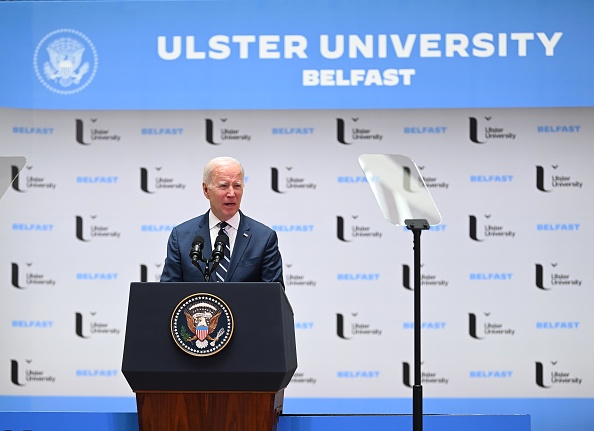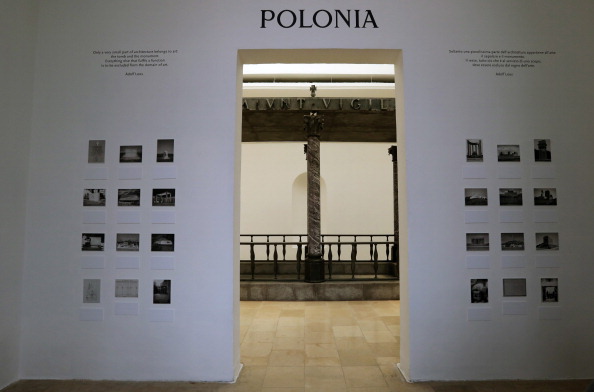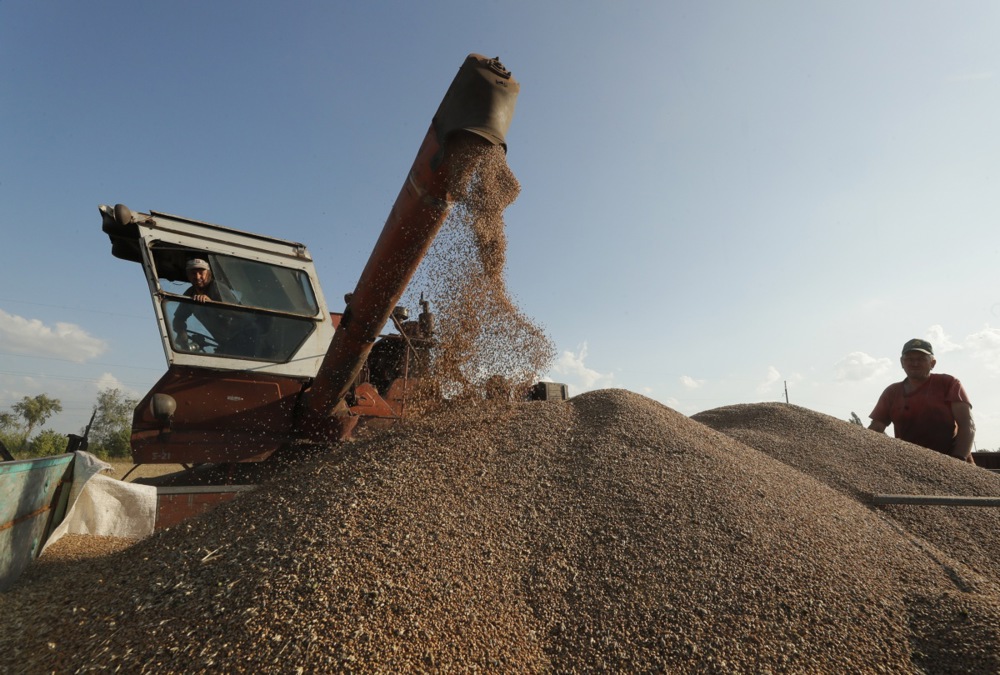Northern Ireland will get a government again after two years as a rudderless ship in a deal involving stickers and sticking with European Union food and goods rules.
The unionist Democratic Unionist Party (DUP), led by Sir Jeffery Donaldson MP, dropped objections on January 30 to joining a power-sharing executive with nationalist Sinn Féin, which could see the new government appointed as early as February 3.
That came following a promise by UK Prime Minister Rishi Sunak to end customs checks between mainland Britain and Northern Ireland – in part with new measures to keep the UK in line with most EU regulations on goods and farm produce.
“On the face of it, Donaldson’s deal will keep the whole UK aligned with the EU,” said Northern Irish political analyst Mick Fealty.
“The key change appears to be a commitment by the UK Government to examine any divergence in regulation for its effect on the internal border between Britain and Northern Ireland,” he said.
This is a “convention” that is “unlikely to be set aside” under an incoming government or the following one, he added.
The lack of a Northern Irish administration since February 2022 sparked the nation’s largest protest in 50 years on January 18. Some 150,000 public-sector workers went on strike to complain about a lack of salary increases.
Part of the new deal requires British food producers to label all their goods as “not for EU”, wherever they are being sold on the mainland. Bringing in that regulation could cost hundreds of millions of pounds, claimed the Food and Drink Federation, which represents and advises UK food and drink manufacturers.
Some parts of the agreement seem primarily cosmetic.
UK companies wanting to sell their goods in Northern Ireland will still need to join the “trusted trader scheme”.
Currently, under the Windsor Framework, there is a “Green Lane” for mainland traders in the UK’s “trusted-trader scheme” to export goods to Northern Ireland, which will not be sold later across the border in Ireland.
Sunak’s deal gives this Green Lane what The Telegraph‘s James Crisp called “a patriotic rebrand” to the “UK Internal Market Lane”.
Given that 7,000 British companies have already signed up for the trusted-trader scheme, “the work has already been done”, an anonymous UK official claimed in the Financial Times on January 31.
The official admitted, though, “it’s true it’s not exactly the same as sending goods inside Britain”.
The UK Government aims for 80 per cent of goods travelling from mainland Britain to Northern Ireland to take the “UK Internal Market Lane”, with minimal paperwork.
A new monitoring panel will check whether London’s 80 per cent goal is being achieved. The pledge seems largely to rely on a sufficient number of exporters joining the trusted-trader scheme.
Less cosmetically, UK Government ministers will now need to inform Parliament if they are introducing legislation with “significant adverse implications” that may cause the UK to “diverge” from EU standards.
Public bodies will also need to identify “regulatory divergence” with the EU, read a Government paper presented to the House of Commons on January 31.
Or, as Sunak’s Government much prefers to phrase it, any developments threatening “Northern Ireland’s place in the UK internal market”.
With this pledge, he appears to be “dusting down” former prime minister Theresa May’s 2019 proposal to keep UK and EU rules on goods and food mostly aligned, said The Guardian‘s Lisa O’Carroll.
Implementing the proposal would remove any need for post-Brexit checks between Northern Ireland and Britain.
The ruling Conservative Party’s European Research Group (ERG) killed-off May’s proposal at the time.
The subsequent introduction of checks separating Northern Ireland from the rest of the United Kingdom infuriated the DUP, which had refused to participate in a government since then.
The European Research Group (ERG) is made up of Eurosceptic Conservative MPs and members including Tory MP Bill Cash have said they will support the deal if the DUP does.
After a five-hour debate among the DUP’s 120-member executive into the early morning on January 30, Donaldson announced he had been “mandated to move forward”.
Westminster will vote on two new pieces of legislation, renaming the Green Lane and introducing the new checks on regulatory divergence, on February 1.
Sinn Féin’s Michelle O’Neill who, as head of the largest party in Northern Ireland, will be the new government’s First Minister. He said on January 31 there was an “understanding” the Stormont Assembly would meet to appoint the new administration on February 3.
There are reports, though, that Donaldson may only have secured the backing of 53 per cent of his own executive, said Aaron Edwards, a Belfast native and senior lecturer at the Royal Military Academy Sandhurst.
Unionist leaders may face a “precarious path” ahead, with “trouble – possibly even revolt – along the way”, he said.
The DUP’s own Chief Whip Sammy Wilson, appears already to have broken ranks by calling Sunak “spineless” and “Brexit-betraying” in “refusing to take on the EU”.
Donaldson and his slim majority, though, appear reassured by effectively cosmetic moves such as a new UK East-West Council designed to “affirm Northern Ireland’s place in the [British] Union”.
There is also a promised £3.3 billion (€3.87 billion) financial package from Westminster, conditional on a new government forming, which Donaldson’s party can have a say in distributing.
If Labour leader Sir Keir Starmer takes power in UK elections expected for later in 2024, the party leads by 23 points in polls, he has promised a UK veterinary agreement with the EU that also would involve London following EU regulatory standards.
The European Commission in December, 2022 extended to December 31, 2025 the current arrangements for the movement of veterinary medicines from Britain to Northern Ireland, Cyprus, Ireland and Malta.
Trailing so badly in the polls, Sunak “desperately” wants a deal restoring Northern Irish devolution so he “can chalk it up as a win”, according to Jayne McCormack, the BBC‘s Northern Ireland correspondent.
By introducing the new safeguards regarding UK divergence with EU goods and food standards, Sunak’s deal may also establish a precedent – making Starmer’s veterinary deal more likely to be installed.
In which case, more trade barriers may topple between Britain and EU – if there are tacit UK agreements to follow the bloc’s rules.





